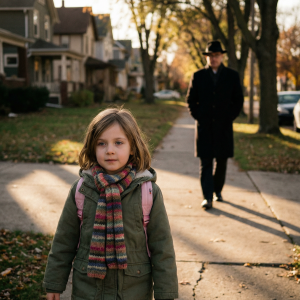At just 56 pounds, Valeria Levitin carries a burden far heavier than her dangerously low body weight. The 39-year-old woman, whose skeletal frame has earned her the unfortunate distinction of being called the world’s thinnest woman, faces an irony that breaks her heart daily: young women write to her asking for advice on how to look just like her.
“They see me as inspiration,” Valeria says, her voice carrying the weight of responsibility she never asked for. “Young women, mostly in their twenties, send me emails begging me to teach them my secrets.”
But Valeria has no secrets to share—only warnings.
Standing nearly 5 feet 8 inches tall, medical guidelines suggest she should weigh somewhere between 126 and 168 pounds. Instead, she’s trapped in a body that weighs less than most children, the devastating result of decades battling anorexia nervosa. And she’s determined to make one thing crystal clear: this is nobody’s aspiration. This is a living nightmare.
When Control Becomes Prison
Valeria’s story begins long before she became a cautionary figure, back in Russia where a well-intentioned mother made fateful decisions. Terrified that her daughter might inherit the obesity that ran in their family, Valeria’s mother became fixated on her weight from an early age. Every meal was monitored. Every pound scrutinized. What started as concern morphed into something far more damaging.
The real spiral began at sixteen, when Valeria and her family relocated to Chicago. Weighing around 140 pounds—perfectly healthy for her height—she convinced herself that shedding weight would unlock social acceptance at her new school. She slashed sugar and carbs from her diet, watching the scale drop with a satisfaction that would later turn toxic.
Then came the comment that shattered everything. During a casual game of football, a classmate’s cruel joke about using her “big behind” as a goal devastated the teenager. From that moment, losing weight became an obsession she couldn’t shake.
The Descent
By twenty-three, Valeria had shrunk from a size 12 to a size 6. When she pursued modeling, the industry delivered its own brutal verdict: still too large. At twenty-four, weighing just 84 pounds, doctors banned her from dancing—her body too fragile to withstand the physical demands without serious injury.
The next ten years saw Valeria consulting more than thirty specialists, her weight plummeting to a terrifying low of just 52 pounds. Her body, deprived for so long, began rejecting the very foods she once eliminated by choice. Bread? She can’t even remember what it tastes like anymore.
Now living in Monaco, Valeria survives on nutritional supplements, carefully avoiding any situation where a fall might shatter her brittle bones. Simple bruising has become a genuine threat. Romance feels impossible—she hasn’t been in a relationship for a decade. How do you build intimacy with someone when you can’t even share a meal?
Turning Pain Into Purpose
Rather than hide from the spotlight, Valeria has chosen to step into it, using her story as a weapon against the disorder that stole her life. She refuses every request from young women seeking her “guidance,” instead launching a passionate campaign against anorexia.
“I’m lonely. I feel unattractive. I feel repulsive to everyone around me,” she admits with painful honesty. It’s a confession meant to shatter illusions, to show the girls writing her that there’s nothing glamorous about her existence.
Despite seeing countless specialists, Valeria believes traditional medical intervention is essential for recovery—yet weight gain remains elusive. Still, she hasn’t surrendered hope. She dreams of returning to Moscow, where she feels most like herself, to pursue something that seems almost impossible: becoming a mother through surrogacy.
“I want a family so badly because I know I have so much love to give,” she explains. “But I understand it wouldn’t be right to bring a child into this situation. It wouldn’t be fair to that baby. I need to beat this first.”
A Message That Must Be Heard
For Valeria, the desire for motherhood has become more than a dream—it’s become her reason to keep fighting. She sees it as the catalyst that might finally help her reclaim her health, to break free from the prison anorexia built around her body and mind.
“I’ve never quit anything in my life,” she says with quiet determination. “I’m not starting now.”
Her message to those who write to her, to anyone who sees her images and feels anything other than concern, is unequivocal: This is what happens when control becomes chaos. This is the destination of that dangerous road. And there’s nothing—absolutely nothing—enviable about reaching it.
Valeria Levitin isn’t offering a roadmap to thinness. She’s holding up a mirror to show exactly where that path leads. And she’s praying someone will finally see the truth reflected back.





